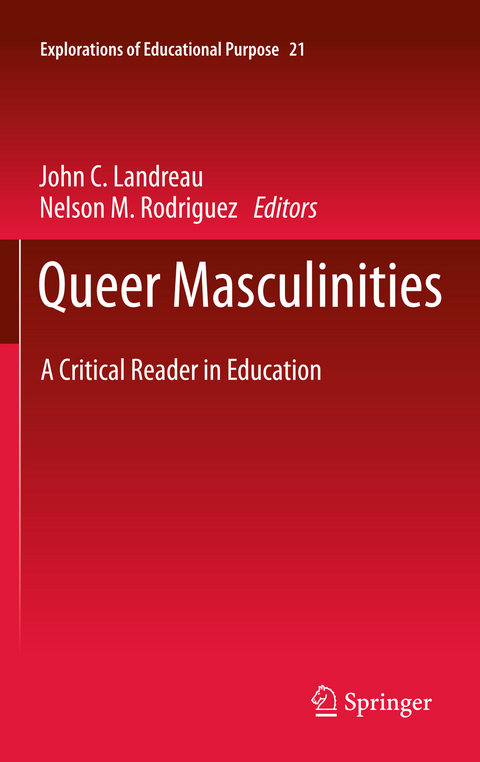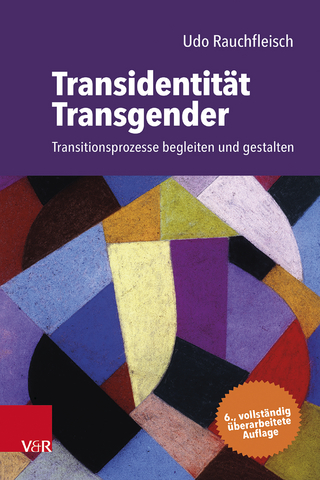
Queer Masculinities
Springer (Verlag)
978-94-007-3823-2 (ISBN)
The essays adopt a range of approaches from empirical studies to reflective theorizing, and address themselves to three separate educational realms: the K-12 level, the collegiate level, and the level in popular culture, which could be called ‘cultural pedagogy’. The wealth of detailed analysis includes, for example, the notion thatnormative expectations and projections on the part of teachers and administrators unnecessarily reinforce the values and behaviors of heteronormative masculinity, creating an institutionalized loop that disciplines masculinity. At the same time, and for this very reason, schools represent an opportunity to ‘provide a setting where a broader menu can be introduced and gender/sexual meanings, expressions, and experiences boys encounter can create new possibilities of what it can mean to be male’. At the collegiate level chapters include analysis of what the authors call ‘homosexualization of heterosexual men’ on the university dance floor, while the chapters of the third section, on popular culture, include a fascinating analysis of the construction of queer ‘counternarratives’ that can be constructed watching TV shows of apparently hegemonic bent. In all, this volume’s breadth and detail make it a landmark publication in the study of queer masculinities, and thus in critical masculinity studies as a whole.
John C. Landreau is associate professor of women’s and gender studies at The College of New Jersey. His research interests include masculinity and the rhetoric of war, gender and literature, and Latin American masculinities. He has published previously on Peruvian and Andean literature and language. Nelson M. Rodriguez is assistant professor of women’s and gender studies and of educational foundations and critical pedagogy at The College of New Jersey. He is also a research fellow at the Paulo and Nita Freire International Project for Critical Pedagogy, Faculty of Education, McGill University, Montreal, Quebec, Canada. His current research areas include LGBT and queer studies, critical masculinity studies, critical heterosexual studies, queer studies in education, and queer/trans pedagogies. His most recent publication (with William F. Pinar) is Queering Straight Teachers: Discourse and Identity in Education (2007). His forthcoming book (with Cris Mayo) is QueerPedagogies: Theory, Praxis, Politics.
Chapter 1. Queer Masculinities in Education: An Introduction, John C. Landreau and Nelson M. Rodriguez. Part I Queer Masculinities at the K-12 Level: Chapter 2. Queering Masculinities in Male Teachers’ Lives, Wayne Martino; Chapter 3. Queer Masculinities, Gender Conformity, and the Secondary School, Mark McCormack; Chapter 4. Phallic Girls?: Girls’ Negotiation of Phallogocentric Power, Emma Renold and Jessica Ringrose; Chapter 5. The Queer in Masculinity: Schooling, Boys, and Identity Formation, Máirtín Mac an Ghaill and Chris Haywood; Chapter 6. Tangling with Masculinity: Butchness, Trans, and Feminism, Cris Mayo; Chapter 7. Queering Classes: Disrupting Hegemonic Masculinity and the Effects of Compulsory Heterosexuality in the Classroom, Robert Heasley and Betsy Crane. Part II Queer Masculinities at the Collegiate Level: Chapter 8. Queering Masculine Peer Culture:Softening Gender Performances on the University Dance Floor, Grant Tyler Peterson and Eric Anderson; Chapter 9. Does Masculinity Have a Race? Queering White Masculinities, Bobby Noble; Chapter 10. Queer Listening as a Framework for Teaching Men and Masculinities, John C. Landreau; Chapter 11. Becoming the Loon: Queer Pedagogies and Female Masculinity, Stacey Waite; Chapter 12. Trading Gender: University Spaces as a Facilitator for Transgressive Embodiment of Women in Male-Dominated Trades, Louisa Smith. Part III Queer Masculinities and Cultural Pedagogies: Chapter 13. Fighting Fairies, Gazing at Men: How to Become a Queer Reader, Jeffery P. Dennis; Chapter 14. “Please Sir! Can I Come Out of the Closet and into the Classroom?”: British Low Culture and Representations of Queer Masculinities in Education, Peter Hughes Jachimiak; Chapter 15. Coming Undone: James Baldwin’s Another Country and Queer Pedagogy, Dennis Carlson; Chapter 16. Queer Imaginative Bodies and the Politics and Pedagogy of Trans Generosity: The Case of Gender Rebel, Nelson M. Rodriguez; Chapter 17. Educating-Bodies: Dialogism, Speech Genres, and Utterances as the Body, David V. Ruffolo. Index.
| Reihe/Serie | Explorations of Educational Purpose ; 21 |
|---|---|
| Zusatzinfo | XX, 316 p. |
| Verlagsort | Dordrecht |
| Sprache | englisch |
| Maße | 155 x 235 mm |
| Themenwelt | Geisteswissenschaften ► Psychologie ► Sexualität / Partnerschaft |
| Sozialwissenschaften ► Pädagogik ► Allgemeines / Lexika | |
| Sozialwissenschaften ► Pädagogik ► Bildungstheorie | |
| Sozialwissenschaften ► Soziologie ► Empirische Sozialforschung | |
| Sozialwissenschaften ► Soziologie ► Gender Studies | |
| ISBN-10 | 94-007-3823-4 / 9400738234 |
| ISBN-13 | 978-94-007-3823-2 / 9789400738232 |
| Zustand | Neuware |
| Haben Sie eine Frage zum Produkt? |
aus dem Bereich


